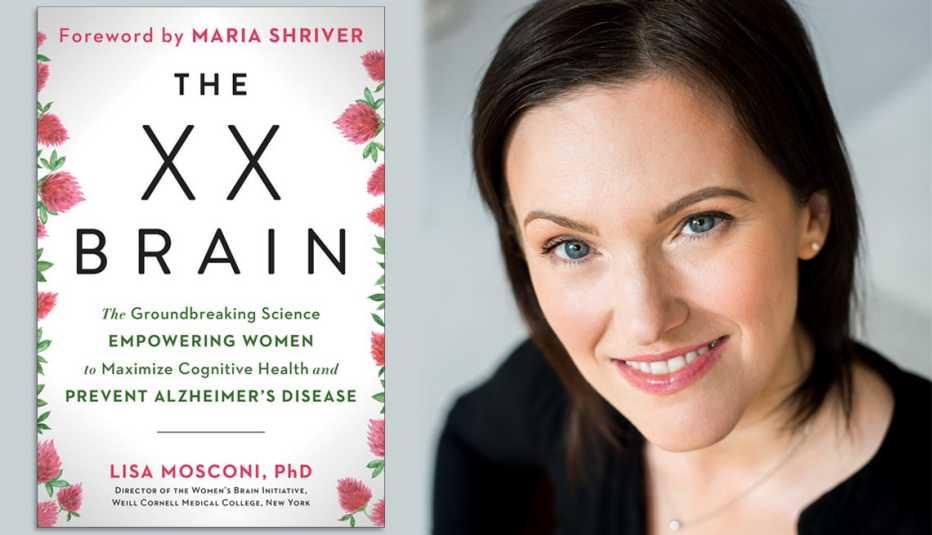AARP Hearing Center


Neuroscientist Lisa Mosconi, whose new book The XX Brain instantly topped best seller lists, became interested in women's brain health because of her own family history. Born and raised in Italy, her grandmother and her grandmother's two sisters died of Alzheimer's disease, while their brother, who lived to the same age, did not develop the disease.
Today, as the director of the Weill Cornell Women's Brain Initiative in New York, Mosconi and her team investigate sex differences in Alzheimer's disease by using brain imaging. In this Q&A, she talks about the book, how hormones affect brain health and the steps women can take to benefit their brains in midlife and beyond.
Your book addresses the fact that two out of every three Alzheimer's patients are women. Historically, what have scientists thought accounted for this, and what does your research show?
When I started out, the general mindset was that women live longer than men and that Alzheimer's disease is a disease of old age. So of course, women have Alzheimer's more so than men. It took many years for the conversation to change.
My question has always been: How are women's brains different from men's brains? Is there anything in women's brains that could potentially explain why women have Alzheimer's more than men?
What really made a big difference for me was the understanding that women don't live that much longer than men. In the United States, women tend to live four and a half years longer than men. In other countries, like the U.K., the difference is more or less two or three years, not 20. Still, in the U.K., Alzheimer's disease and dementia is the number one cause of death for women and not for men, even though the difference in longevity is literally a couple of years.
If not longevity, what helps explain the difference?
Alzheimer's does not actually start in old age. Rather, Alzheimer's starts with negative changes in the brain years, if not decades, prior to clinical symptoms. This brings us away from age 70, when the clinical symptoms of Alzheimer's tend to become manifest, and closer to midlife.
My question became: If Alzheimer's disease starts in midlife, then what happens only to women and not men in midlife that could potentially explain the increased prevalence of Alzheimer's disease in women?



































































More From AARP
Global Council on Brain Health
Homepage for AARP's Global Council on Brain HealthWhy You Should Talk to Your Doctor About Dementia Risks
Lifestyle changes in midlife can help prevent, delay the diseaseStepping Up to Beat Alzheimer's
Meet Judi Polak, Alzheimer's patient and star of a clinical trial showing promising results